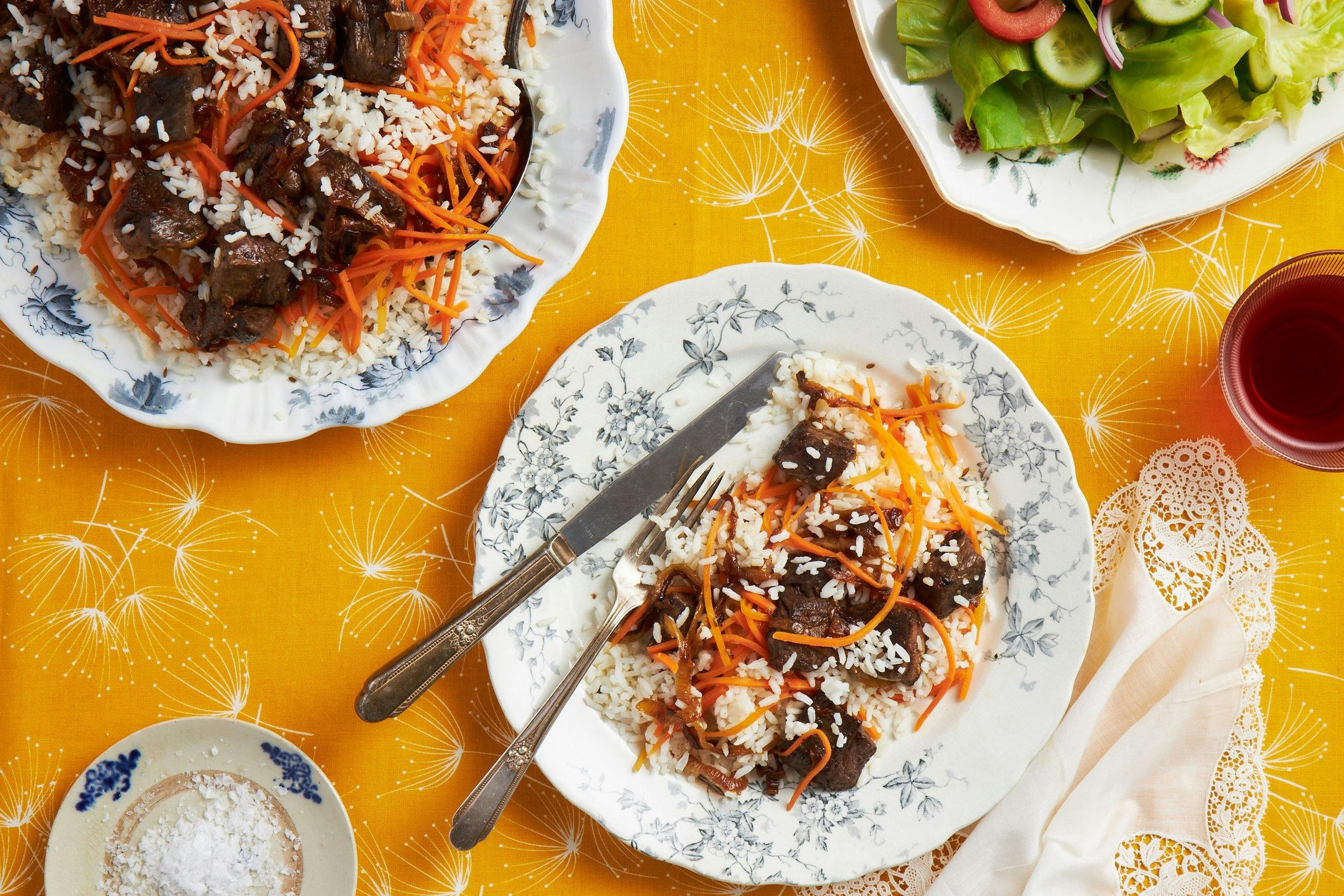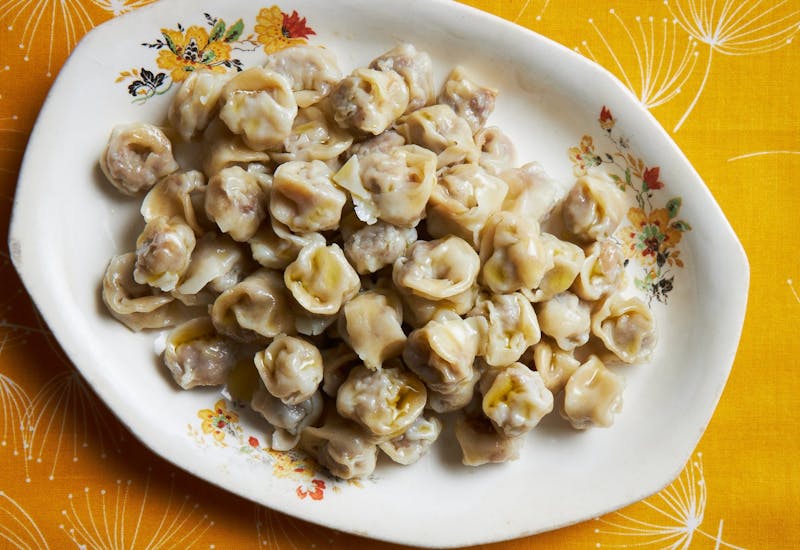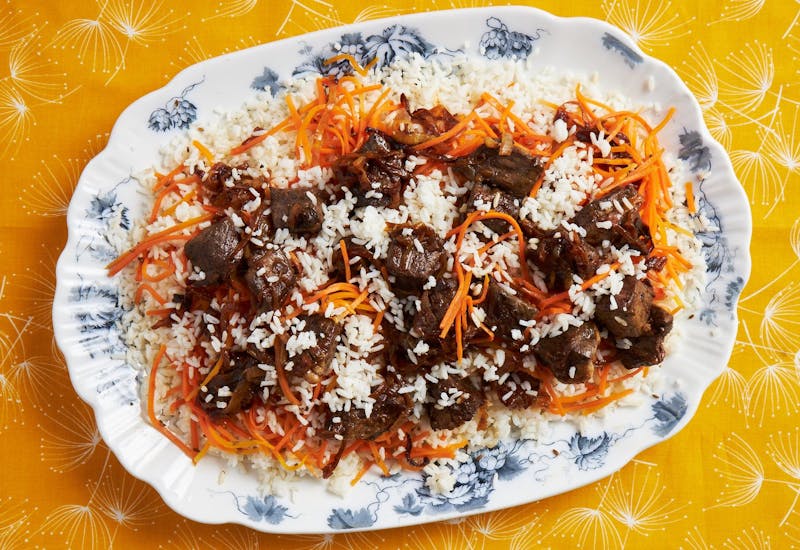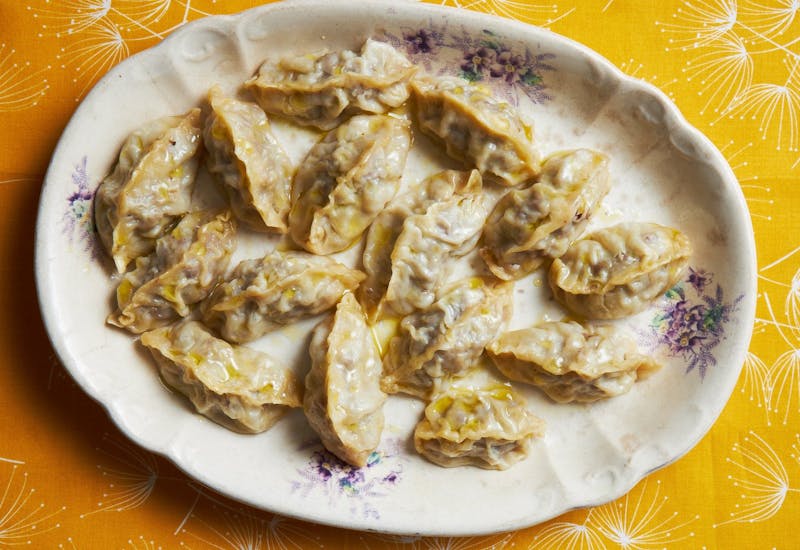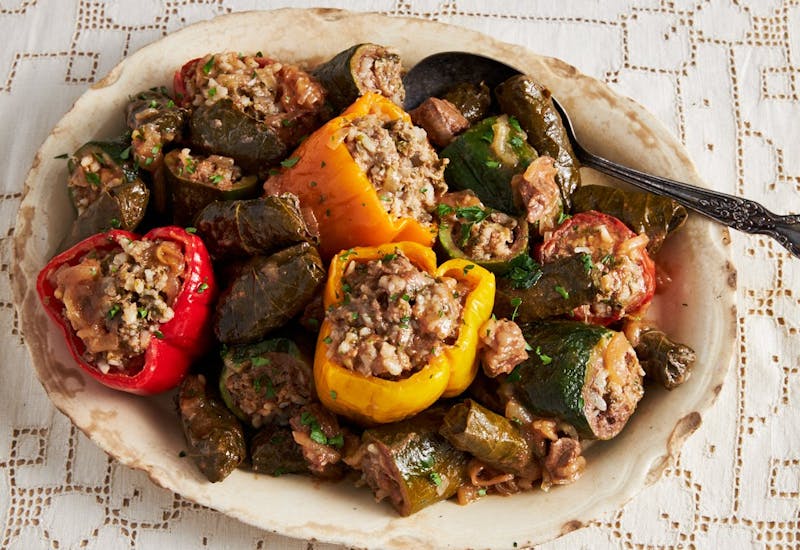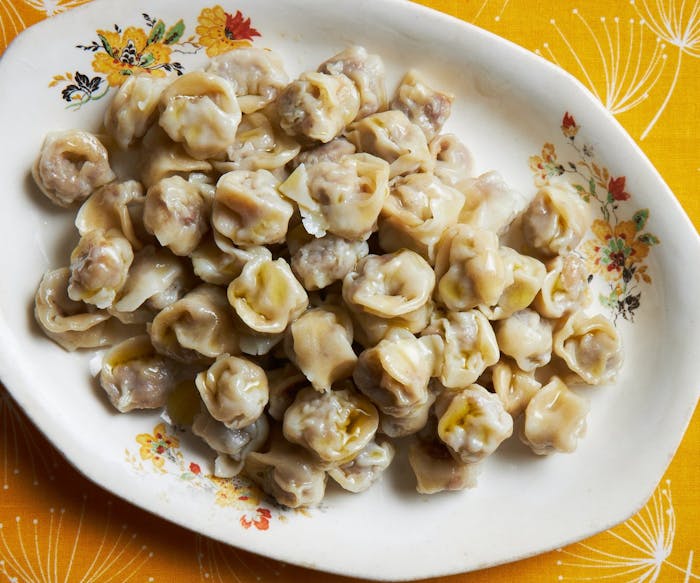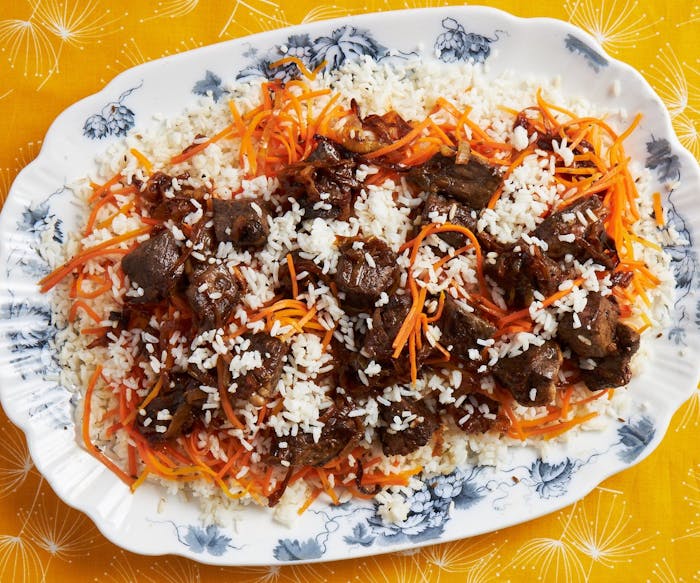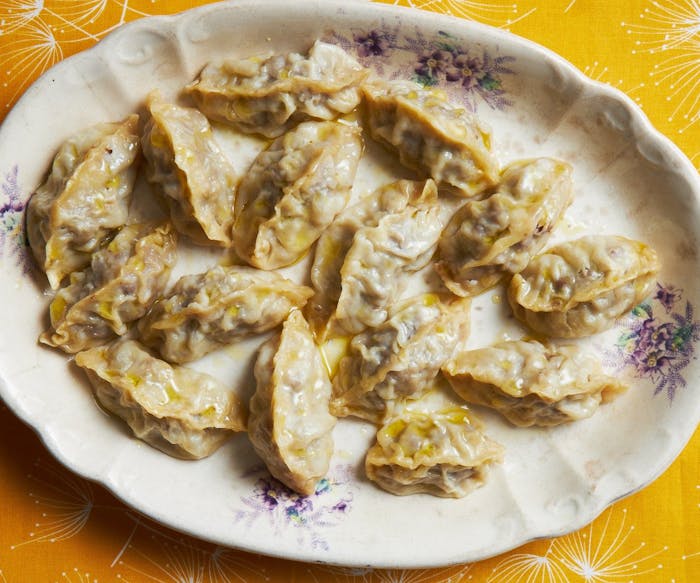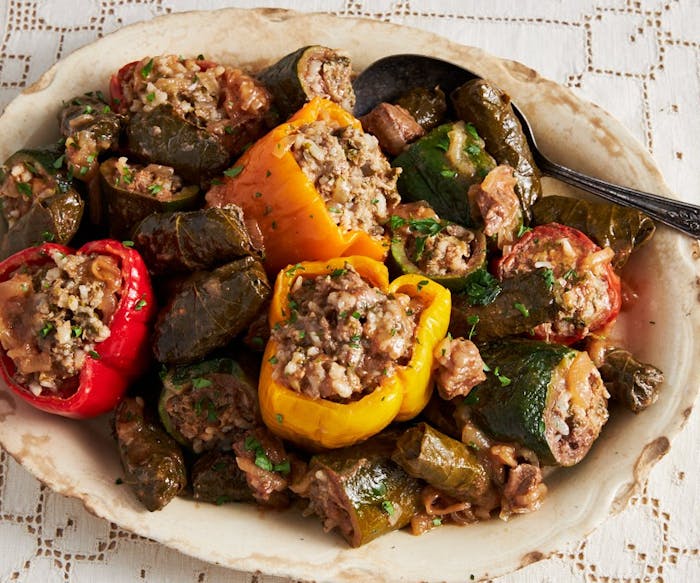“We all lived right next to each other,” Elena says about her family when she was growing up in New York City. “So, it was my mom’s house, and then a block away was my aunt, and then a block away from my aunt was my grandma. We were always hanging out at each other’s houses.” When her grandmother Svetlana Davydov describes her childhood in 1940s and 1950s Uzbekistan, the setup was nearly identical. Her grandmother had seven children and all of them lived so close by, it was as if they lived together — just separated by a few minutes’ walk. “You have to be all together,” Svetlana, who goes by Sveta, says. “Unity makes you stronger.”
Before heading to school for the day in Queens, Elena and her cousins ate breakfast together and when they came home, Sveta would cook a late lunch for everyone, often with recipes inspired by those she learned from her own grandmother. Sveta’s culinary repertoire is deep and wide with dishes like plof or plov, a rice pilaf with chunks of tender beef and carrots, dumplings like pelmeni and manti, savory pastries called samsa, fried carp with garlic, and bakhsh, a rice made green with cilantro. Her cooking is a melange of recipes that spread across the Soviet Union, Uzbek dishes, and Bukharian ones unique to their community.
Bukharians were once part of a large group of Persian-speaking Jews whose origins date to the ancient Persian Empire, explains Claudia Roden in “The Book of Jewish Food: An Odyssey From Samarkand to New York.” But, the community became its own, distinct entity in the 18th century, living in various cities in Uzbekistan where they shared traditions with the local Muslim population. They were generally well off and “Their celebratory meals are legendary,” adds Roden. But, life changed with the arrival of the Bolsheviks.
When Sveta was growing up under Soviet rule in Tashkent, Jewish observance was outlawed. Still, her family kept some of their traditions going in the privacy of their homes. Her grandfather was a rabbi and when he was alive, relatives built a Sukkah in the backyard, lining the floor with locally-made rugs and decorating the hut with pears, apples, melons, and pumpkins. Kosher food was hard to find, but for holiday meals, Sveta’s mother would take a chicken to be slaughtered by a rabbi who ensured it was done according to kosher laws.
Being Jewish publicly was more complex — Sveta felt a sense of pride, but also fear, Elena explains. On her grandmother’s official state documents, her nationality was clearly written: Bukharian. When Sveta took the entrance exam for medical school, she did exceptionally well. Seeing her marks, the head of the medical school proclaimed his shock that a Bukharian Jew had achieved them. The same thing happened when she received an honor at graduation.
Sveta went on to be a pediatrician and to teach medicine. She kept her religious traditions to herself, not sharing them with her colleagues. On Yom Kippur, she quietly fasted, refrained from writing any prescriptions, and walked to the office instead of taking a car or a taxi.
When the Soviet Union began to collapse, her family, like many Soviet Jews, left as refugees. With just one suitcase each, they made their way to Austria and then Italy, where they lived for a few months while their papers were processed. Finally they arrived in New York City in 1990. Sveta was in her 40s, her daughter Lili was just shy of 20, and Elena would be born a few years later.
The transition was difficult. They slept on mattresses pulled from the garbage and Sveta couldn’t transfer her medical degree. Like her own grandmother in Uzbekistan, she stepped in to ensure the family stayed together and was safe. “She dedicated her life to her grandkids,” Elena says.
In recent years, Elena and her sister Dalia started posting cooking videos featuring Sveta on Youtube and other social platforms. It’s a way to spend time together and show off Sveta’s cooking prowess, but it’s about more than that. For Elena, it’s a way to claim her identity and encourage others to do the same. “It’s super important for [people] to know I am Bukharian,” Elena says. “So people feel proud of who they are and where they come from — and not to shy away from it.”
